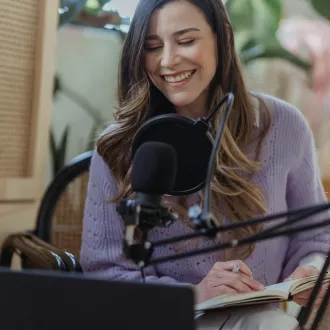Transcription Skills necessary for active and empathic listening
Active and empathic listening is a fundamental skill in any relationship, especially in a couple. It is the ability to listen consciously, paying attention to the other person's words, emotions and needs. This skill allows us to better understand our partner and foster emotional connection, resulting in more effective and satisfying communication.
At this point, we will focus on the skills necessary for active and empathic listening in a couple. These skills are key to effective communication, mutual understanding and empathy in the relationship.
Prepare to listen: The first step in practicing active and empathic listening is to mentally prepare to listen. It is important to put aside any distractions, such as the phone or television, and focus on the conversation. In addition, it is necessary to be in a receptive and nonjudgmental frame of mind, willing to listen without judging or interrupting.
Listening attentively means concentrating on our partner's words, without getting distracted or losing the thread of the conversation. It is important to make eye contact with our partner to show that we are paying attention. It is also helpful to ask small questions or make comments to clarify any confusing points.
Practice empathy: Empathy is the ability to understand and feel the emotions of another person. By practicing empathy during listening, we can put ourselves in our partner's shoes and better understand their feelings and needs. It is important not to judge or criticize our partner's emotions, but to accept and validate them.
Reflecting feelings: Reflecting feelings means verbally expressing the feelings we perceive in our partner. For example, if our partner is talking about a difficult topic and we notice that he or she is sad, we can say, "You seem to be feeling very sad about this." By mirroring our partner's feelings, we show that we are paying attention and that we understand their emotions.
Ask open-ended questions: Open-ended questions are those that cannot be answered with a simple "yes" or "no." These questions encourage a deeper and more meaningful conversation, which allows us to better understand our partner. By asking open-ended questions, we can also demonstrate that we are interested in what our partner has to say and that we are willing to deepen the conversation.
Accept silence: Silence can be uncomfortable, especially during a difficult conversation. However, it is important to allow our partner time to think and process their emotions. Accepting silence can also show that we respect our partner's space and are willing to wait until they are comfortable to continue the conversation.
Validating feelings: Another skill necessary for active and empathic listening is the ability to validate the other's feelings. Validation is important because it shows the other person that their feelings are important and that they are understood. This can help establish a deeper connection and strengthen the relationship.
To validate feelings, it is important to show empathy and understanding. This may involve acknowledging the situation the other person is in, listening carefully to what they are saying, and showing concern for their feelings. It is important to avoid minimizing or denying the other person's feelings, as this can make them feel misunderstood or invalidated.
For example, if your partner is frustrated about a situation at work, you can show your empathy and understanding by saying something like, "I understand that you are frustrated about what happened at work today. It must have been difficult for you." This statement shows that you are actively listening, that you care about your partner, and that you understand his or her feelings.
It is important to remember that validation does not necessarily mean agreeing with the other person's feelings. You may not agree with how your partner feels, but you can still validate their feelings. Validation is about showing empathy and understanding, not judgment or criticism.
Also, it is important to keep in mind that validation does not involve solving the problem or providing a solution. While it may be tempting to try to solve the problem right away, it is important to allow the other person to express their feelings and actively listen to them before offering a solution.
skills listening active




